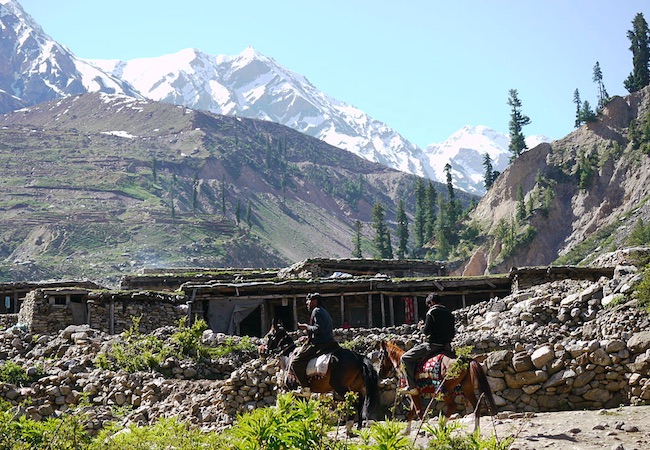
By Zainab Aziz
South Asian neighbours of India have always been affected by the terrorism spread by it. It had been involved in sponsoring and backing extremist non-state actors like Mukti Bahanis in former East Pakistan, Liberation Tigers of Tamil Eelam (LTTE) in Sri Lanka, Moist in Maldives, Maoist insurgency in Nepal and many other terrorist groups in countries of South Asia. India’s notorious spying agency Research and Analysis Wing (RAW) has been behind all these covert activities. The primary objective of RAW since 1968 is to destabilize its neighbouring countries in order to maintain the hegemony of India over the other South Asian nations. Pakistan has the proofs of Indian sponsored state terrorism and Pakistan has given its evidences to the United States, United Nations, European Union and many other countries. The terrorist network spread in Pakistan by the Indian spy Kulbhushan Yadhav, who has been given death sentence by the military court of Pakistan Army, has confessed before a magistrate and the Military court that “he was tasked by Indian spy agency Research and Analysis wing to plan, coordinate and organise espionage and sabotage activities seeking to destabilise and wage war against Pakistan through impeding the efforts of law enforcement agencies for the restoration of peace in Balochistan and Karachi.” The provoking statements by the Indian Home Minister Raj Nath and the External Affairs Minister Sushma Swaraj “I would caution the Pakistani governmentt to consider consequences for our bilateral relationship if they proceed on this matter” add more hostility to the region’s environment. It is quite evident now that India uses different tactics and strategies to promote terrorism in different countries as it has been using particularly Afghan soil against Pakistan.
The strained relations between Pakistan and India have been present since 1947 while the hostility between Afghanistan and Pakistan has been ongoing now for about four decades. India has been instigating proxy war in Afghanistan mainly against Pakistan that began after the collapse of Dr. Najibullah’s regime in 1992, which had been backed by the former USSR. India accuses Pakistan only and refuses its involvement in Afghanistan while the Pakistani and Afghan officials repeatedly discussed the solutions to the proxy war. India’s proxy war has been concealed by the US-led war against terror otherwise it would have been clearly manifested to the whole world. Indian government also employs the strategy of taking on a more robust military role in Afghanistan which would enable India to fill the security vacuum left by the US withdrawal. This will result in India’s advancements of its regional interests, competing with its Chinese rival for influence in the country, and destabilizing Pakistan at the same time. Now is the right time for Afghans to debate, analyze and discuss this issue in depth, as well as to define their relationships based on mutual interest with both countries.
Indian government keeps on creating hurdles in bringing peace in Afghanistan, mainly when India is not willing to admit its responsibility. Consequently, the Afghans and Pakistanis have paid a high price for this ongoing proxy war. Over the last decade, every attempt at peace talks with the Taliban insurgents has been blocked by the countries that are adamant to see the South Asian region destabilized. The relationship and friendship with India has been costly for Afghanistan, it costs the lives of thousands of innocents Afghans and billions of dollars in damage and destruction. Pakistan’s concerns are genuine; therefore it wants serious efforts in Afghanistan to intercept trained terrorists from crossing into the country. As the former military ruler General Pervaiz Musharraf also highlighted once “That is another danger for the whole region and for Pakistan because Indian involvement there has an anti-Pakistan connotation. They (India) want to create an anti-Pakistan Afghanistan.” India has tried to gain traction with the Tajik ethnic group of Afghanistan as their proxy; it has also been financing and supporting separatist rebels in Balochistan via training camps in southern Afghanistan. Pakistan’s support has always been crucial to Afghan peace as US-led forces have to pull out one way or another after many years of battling the Taliban. Peace between India and Pakistan is pertinent for bringing peace in Afghanistan. While it may be wise for Afghanistan to sustain its partnership with India, but as an ally India should assist Afghanistan in the peace process
In order to ensure the security and economic dynamics of South Asia, a détente between India and Pakistan is essential for it. An Indo-Pak synergy is of utmost importance against the horizon of withdrawal of Western forces from Afghanistan. The possibility of a stable South Asia would seem gloomy if India, Pakistan and even Afghanistan continue to feel apprehensive about each other as neighbours.
Zainab Aziz is a Research Affiliate at the Strategic Vision Institute in Islamabad, Pakistan




